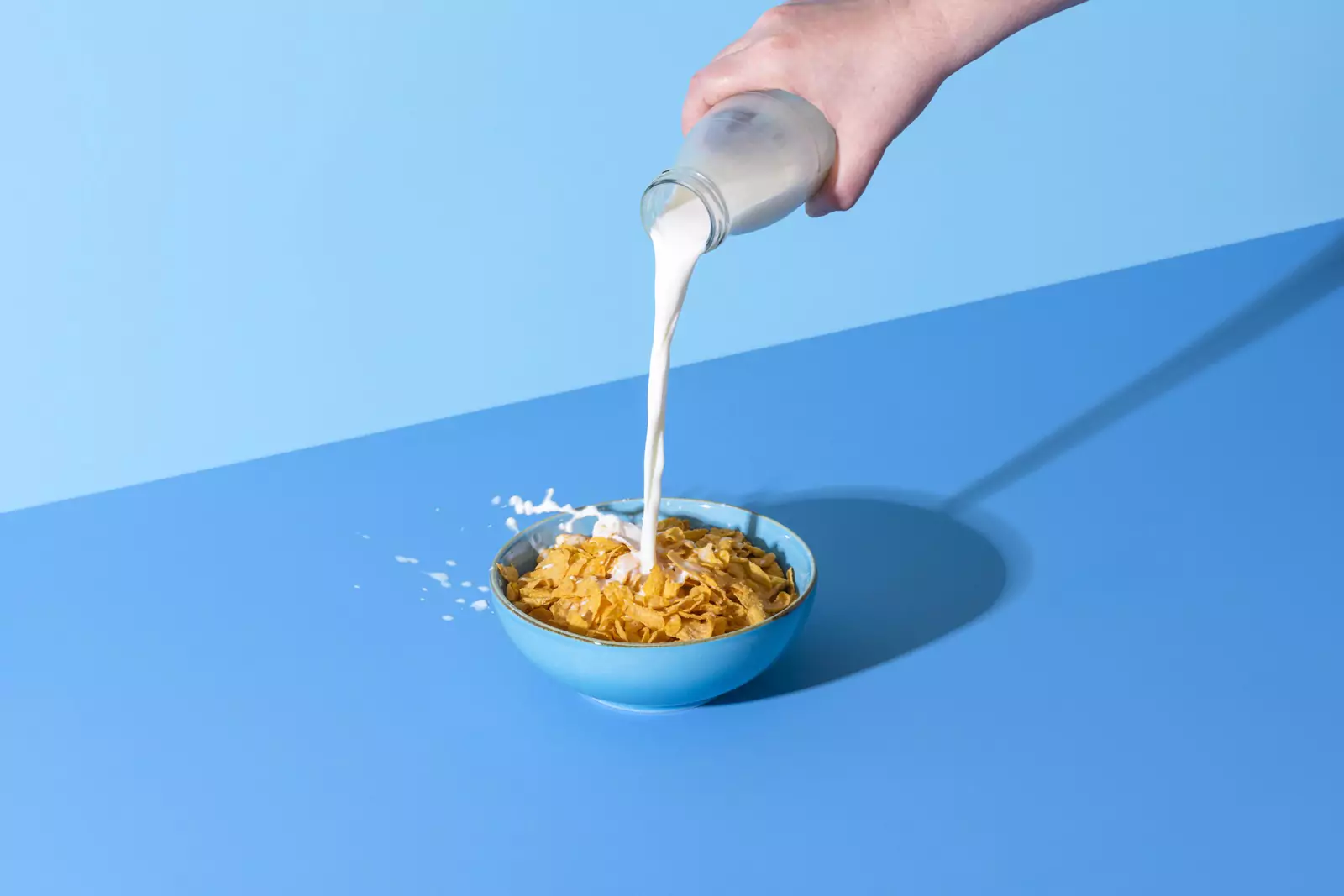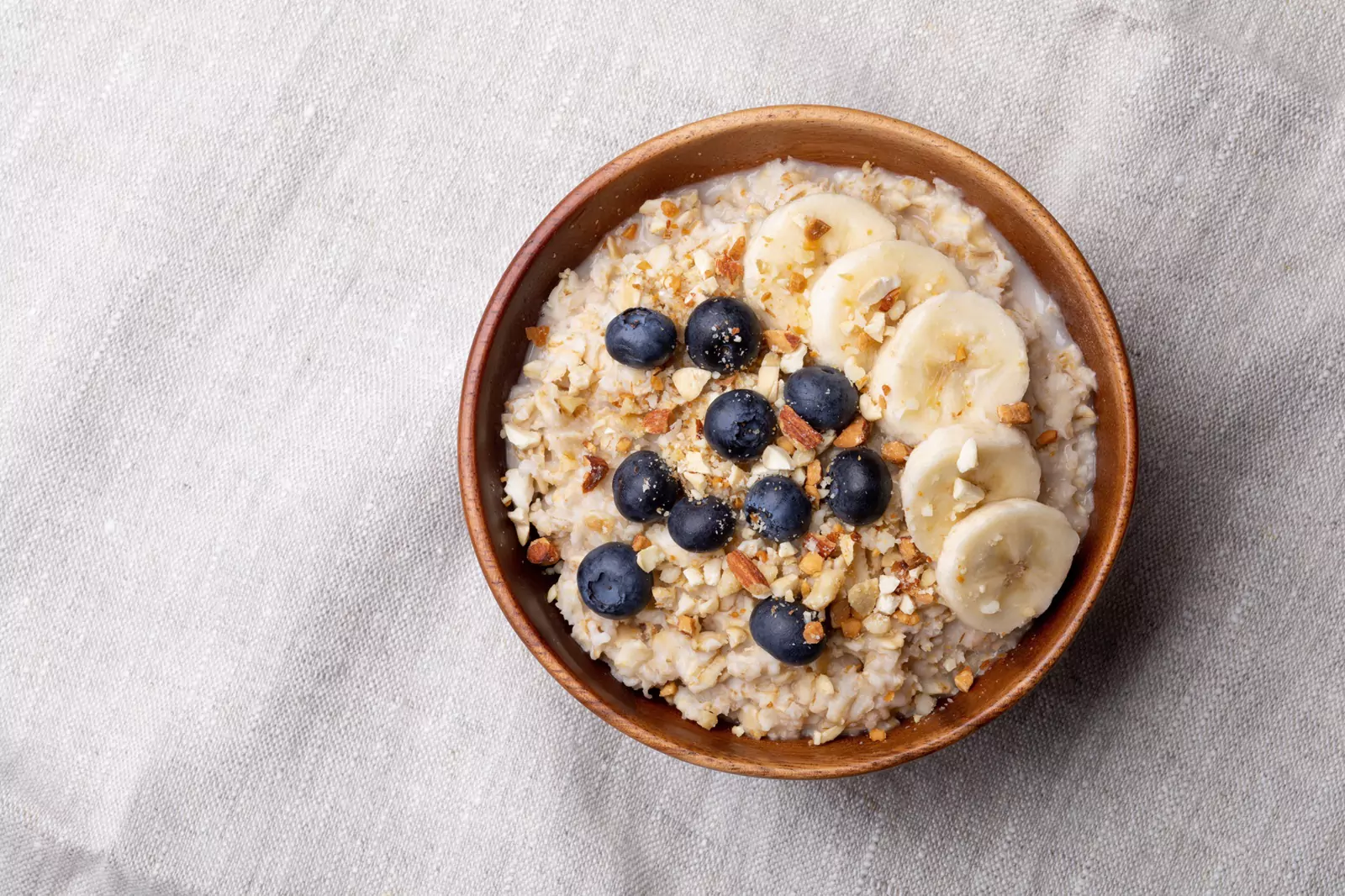
UP TO 40% OFF SITEWIDE






Proven Ways to Prevent Sugar Spikes


Table of Contents
- Balanced Meals for Steady Blood Sugar
- The Role of Macronutrients
- Fiber-Rich Foods for Stability
- Timing Your Meals
- The Downside of Processed Foods
- Berberine to Reduce Sugar Spikes
- How Berberine Works
- Studies Supporting Berberine's Efficacy
- Exercise and Physical Activity
- The Immediate Benefits
- Exercise Types for Blood Sugar Control
- When to Exercise
- Exercise Precautions for People with Type 2 Diabetes
- Apple Cider Vinegar to Reduce Blood Sugar
- How Apple Cider Vinegar Works
- Practical Ways to Incorporate Apple Cider Vinegar
- The Role of White Bread and Carbs
- Alternatives to White Bread
- The Glycemic Index
- Carbs and Post Meal Blood Sugar
- Practical Tips and Lifestyle Changes
- Meal Planning and Preparation
- Monitoring Your Blood Sugar
- Community and Support
- Setting Achievable Goals
- Conclusion
- About The Author
Are you tired of the rollercoaster ride of sugar spikes and crashes? You're not alone. Managing blood sugar levels can be a daunting task, but it's crucial for your overall health and well-being.
In this article, we'll explore proven ways to prevent sugar spikes that are both effective and easy to incorporate into your daily routine. From natural supplements to lifestyle changes, we've got you covered.
Balanced Meals for Steady Blood Sugar
The Role of Macronutrients
Let's kick things off with macronutrients, shall we? These are the big players in your diet: carbohydrates, proteins and fats. Now, you might be wondering, "How do these relate to my blood sugar?" Good question! Carbohydrates, especially simple ones, enter the bloodstream quickly, causing a spike in blood sugar.
Proteins and fats, on the other hand, are like the steady friends who help you keep your cool. They slow down the absorption of sugar, helping you avoid blood sugar spikes. So the trick is to balance these macronutrients in your meals. For instance, instead of just having a bowl of white rice, why not add some grilled chicken and a drizzle of olive oil?
Fiber-Rich Foods for Stability
Next up, let's talk fiber. Ah the unsung hero of a balanced diet! Foods rich in fiber, like whole grains, fruits and vegetables, are your allies in maintaining post-meal blood sugar levels. Why? Because fiber slows down the rate at which sugar is absorbed into your bloodstream.
This means you won't experience those dreaded blood sugar rises that put you at risk. So the next time you're grocery shopping, reach for the whole-grain bread instead of the white bread. Your blood sugar will thank you.
Timing Your Meals
Now, let's get into timing. You know the saying, "Timing is everything"? Well, it's especially true when it comes to meals and blood sugar. Eating large meals or skipping meals can lead to increased blood sugar levels.
Consistency is key. Aim for balanced meals at regular intervals to keep your blood sugar in check. Monitoring your blood sugar can help you understand how your body reacts to different foods and meal timings. So, set a schedule and stick to it. No excuses!
The Downside of Processed Foods
Last but not least, let's delve into the world of processed foods. Sure they're convenient, but at what cost? Processed foods are often high in sugar, salt and unhealthy fats. They can lead to a rapid spike in blood sugar and are generally low in nutrients.
Plus they're usually lacking in fiber which as we've established, is crucial for blood sugar stability. So the next time you're tempted to grab that bag of chips or sugary cereal, think twice. Opt for whole, natural foods instead. Trust us; your body will feel the difference.
Berberine to Reduce Sugar Spikes
Berberine is an alkaloid, a naturally occurring compound found in the bark and roots of various plants. It's not a new kid on the block; it has been used for centuries in traditional Chinese medicine.
But why should you care? Because Berberine has shown promise in helping to regulate blood sugar levels, making it a potential ally in your quest to prevent sugar spikes.
How Berberine Works
Let's get into the nitty-gritty. Berberine works by activating an enzyme called AMPK which is often referred to as a "metabolic master switch." Activation of AMPK helps improve insulin sensitivity which is crucial for regulating blood sugar.
In simpler terms, it helps your body respond better to insulin the hormone that manages sugar in your blood. This can be particularly beneficial for people with type 2 diabetes or those who experience insulin resistance.
Studies Supporting Berberine's Efficacy
You don't have to take our word for it; science backs it up. Numerous studies have shown that Berberine can be as effective as some pharmaceutical drugs in regulating blood sugar. One study even found that it was able to reduce blood sugar levels by 20% in individuals with type 2 diabetes.
That's not a number to scoff at. Moreover, Berberine has been found to be beneficial in long-term blood sugar management, making it a sustainable option for those looking to improve their blood sugar levels over time.
Exercise and Physical Activity
The Immediate Benefits
Let's dive right in. Exercise isn't just about building muscle or losing weight; it's a game-changer for blood sugar control. When you exercise, your muscles consume sugar from your blood for energy, leading to an immediate drop in blood sugar levels. This is a quick win in your battle to prevent sugar spikes.
But wait there's more. Exercise also increases insulin sensitivity. What does that mean? Simply put, your body becomes better at using insulin to manage blood sugar.
Exercise Types for Blood Sugar Control
Not all exercise is created equal, especially when it comes to blood sugar management. Aerobic exercises like walking, swimming and cycling are great for improving your cardiovascular health and reducing blood sugar.
On the flip side, strength training helps build muscle mass which can improve long-term blood sugar control. Why? Because muscles are better at absorbing sugar from the blood. So, a mix of both aerobic and strength training can be your best bet for comprehensive blood sugar control.
When to Exercise
Timing, as they say, is everything. This holds true for exercise and its impact on blood sugar. Morning workouts can help you set the tone for the day by stabilizing your blood sugar early on.
However, if you're a night owl, evening workouts can also be effective but be cautious; exercising too close to bedtime can disrupt your sleep. Monitoring your blood sugar before and after exercise can give you valuable insights into how your body responds to physical activity at different times.
Exercise Precautions for People with Type 2 Diabetes
If you have type 2 diabetes, exercise is still beneficial, but there are some precautions to consider. First, always consult your healthcare provider before starting a new exercise regimen. Why? Because certain diabetes medications can cause low blood sugar and exercise might exacerbate this.
Also, be mindful of foot care. Diabetes can lead to decreased blood flow to the extremities, making you more susceptible to foot injuries. So, proper footwear is a must. Lastly, stay hydrated and keep a close eye on your blood sugar levels before, during and after exercise to avoid any drastic fluctuations.
Apple Cider Vinegar to Reduce Blood Sugar
Apple cider vinegar has been around for ages, a staple in many households for its versatility. It's been used for everything from cleaning to cooking, but did you know it's also a secret weapon for blood sugar control? That's right.
Traditional uses of apple cider vinegar include aiding digestion and supporting metabolic health, both of which are key factors in maintaining balanced blood sugar levels.
How Apple Cider Vinegar Works
So how does it work? Apple cider vinegar contains acetic acid which has been shown to improve insulin sensitivity. This is crucial because insulin is the hormone responsible for regulating blood sugar. Improved insulin sensitivity means your body can better manage sugar, helping to prevent blood sugar spikes.
Additionally, apple cider vinegar slows down the rate at which food leaves your stomach. This can lead to more gradual blood sugar rises after meals, making it easier to maintain post-meal blood sugars.
Practical Ways to Incorporate Apple Cider Vinegar
You might be wondering, "How do I add this to my routine?" It's simpler than you think. One common method is to dilute a tablespoon of apple cider vinegar in a large glass of water and drink it before meals. But if you're not a fan of the taste, you can also use it in salad dressings or even add it to smoothies.
Just remember, moderation is key. Too much apple cider vinegar can lead to digestive issues and may interact with certain medications. Always consult your healthcare provider before making significant changes to your diet or lifestyle.
The Role of White Bread and Carbs
Let's get straight to the point: white bread is not your friend when it comes to maintaining steady blood sugar levels. Why? Because it's made from refined flour which is stripped of its nutrients and fiber. This leads to rapid absorption of sugar into the bloodstream, causing a spike in blood sugar.
It's like a sugar rush, but not the fun kind. The absence of fiber means your body processes it quickly, leading to increased blood sugar levels that can put you at risk for long-term health issues.
Alternatives to White Bread
So, if white bread is off the table, what can you eat? Plenty, actually. Whole-grain bread is a fantastic alternative. It contains more fiber which as we've discussed, is crucial for slowing down sugar absorption and improving post-meal blood sugar.
Other options include sourdough, rye and even gluten-free bread if you're sensitive to gluten. These alternatives not only offer more nutrients but also help in monitoring your blood sugar effectively.
The Glycemic Index
Ever heard of the Glycemic Index (GI)? It's a ranking system for carbohydrates based on how quickly they raise blood sugar levels. Foods with a high GI, like white bread, cause rapid spikes in blood sugar.
On the other hand, foods with a low GI are digested and absorbed more slowly, leading to a gradual rise in blood sugar. So, when you're grocery shopping, look for bread with a low GI. It's a simple yet effective way to keep your blood sugar in check.
Carbs and Post Meal Blood Sugar
Carbohydrates are not the enemy; it's the type of carbs you choose that matters. Complex carbs, found in foods like whole grains and legumes, have a different impact on your blood sugar compared to simple carbs found in foods like white bread.
Complex carbs are digested more slowly, leading to a more gradual rise in post-meal blood sugar. This is essential for people with type 2 diabetes or anyone looking to prevent blood sugar spikes.
Practical Tips and Lifestyle Changes
Meal Planning and Preparation
Let's start with something we all do every day: eat. Meal planning isn't just for fitness enthusiasts; it's a cornerstone for anyone looking to prevent sugar spikes. Why? Because knowing what you'll eat and when you'll eat it takes the guesswork out of your diet.
It helps you make better choices, like opting for balanced meals over fast food. And let's not forget portion control. Measuring your food portions can help you avoid blood sugar spikes and keep your glucose levels in check.
Monitoring Your Blood Sugar
You can't manage what you don't measure. Monitoring your blood sugar is like having a roadmap for your health journey. It gives you real-time feedback on how different foods, activities and even stress levels affect your blood sugar. This is invaluable information that can guide your choices throughout the day.
For example, if you notice a spike in blood sugar after eating white bread, you'll know to opt for a lower glycemic index option next time. It's all about making informed decisions that contribute to long-term health.
Community and Support
Don't underestimate the power of a strong support system. Whether it's friends, family, or online communities, having people who understand your struggles can make all the difference.
They can offer advice, share their experiences, or simply lend a listening ear when you need it. And if you're the type who thrives on competition, having a community can provide that extra push to meet your goals. It's easier to stay on track when you know you're not alone.
Setting Achievable Goals
Last but not least, let's talk about goals. Setting achievable goals is like having a destination in mind before you start a journey. It gives you something to aim for, a reason to stay committed. But remember the key word here is "achievable."
Unrealistic goals can lead to frustration and may cause you to give up altogether. Start small, like aiming to walk 10,000 steps a day or replacing one sugary drink with water. As you achieve these smaller goals, you'll build confidence to tackle bigger challenges.
Conclusion
So there you have it, proven ways to prevent sugar spikes that can help you lead a healthier, more balanced life. Remember, managing your blood sugar isn't just for people with diabetes; it's a crucial aspect of overall health that everyone should pay attention to.
Whether you choose to try Berberine, Apple Cider Vinegar, or focus on balanced meals and exercise the key is to be consistent and make these practices a part of your daily life. Your future self will thank you.
About The Author
Meet Dr. Ahmet Ergin a highly skilled and dedicated endocrinologist with a passion for diabetes care. Dr. Ergin earned his medical degree with honors from Marmara University in Istanbul. He completed internal medicine residency and endocrinology fellowship at Cleveland Clinic.
Dr. Ergin is board-certified in Internal Medicine, Endocrinology, Diabetes, and Metabolism due to his vast medical expertise. He's a certified diabetes educator, author of "The Ultimate Diabetes Book," and founder of "the SugarMD YouTube channel."
Dr. Ergin offers exceptional diabetes care to his patients in Port Saint Lucie, FL, helping them manage effectively. Disclaimer: These statements have not been evaluated by the Food and Drug Administration. Information on this website isn’t intended to treat, cure or prevent any disease. Discuss with your doctor and do not self-treat.
Written By Dr. Ahmet Ergin
466 total articles
Meet Dr. Ahmet Ergin, a highly skilled and dedicated endocrinologist with a passion for diabetes care. Dr. Ergin earned his medical degree with honors from Marmara University in Istanbul. He completed internal medicine residency and endocrinology fellowship at Cleveland Clinic. Dr. Ergin is board-certified in Internal Medicine, Endocrinology, Diabetes, and Metabolism due to his vast medical expertise. He's a certified diabetes educator, author of “The Ultimate Diabetes Book,” and founder of “the SugarMD YouTube channel.” Dr. Ergin offers exceptional diabetes care to his patients in Port Saint Lucie, FL, helping them manage effectively. For a closer look into his insights and experiences, connect with Dr. Ahmet Ergin on LinkedIn, Instagram, and YouTube.”
Disclaimer: These statements have not been evaluated by the Food and Drug Administration. Information on this website isn't intended to treat, cure or prevent any disease. Discuss with your doctor and do not self-treat.
Products















